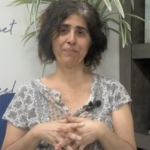Medically Reviewed by: Dr. Bautista
Our Editorial Policy
Updated on: November 21, 2019
About Neuroblastoma
Neuroblastoma is a form of cancer that develops in immature nerve cells, usually found in the fetus or embryo. This is why it most often develops in infants and children under the age of 10 and why it is known as the childhood cancer. While it can potentially develop in later childhood, neuroblastoma is rarely diagnosed in anyone over the age of 10.
Neuroblastoma usually occurs in and around the adrenal glands, but this cancer can develop just about anywhere in the abdomen. Neuroblastoma can develop in the neck, chest, and around the spine where many nerve tissue cells congregate.
Causes and Risk Factors
Cancers start as a genetic mutation that causes healthy cells to grow out of control. Cancerous cells grow and multiply, eventually forming a tumor. Further growth of the tumor can result in types of cancer spreading to other parts of the body, becoming metastatic. Neuroblastoma specifically starts in the immature nerve cells of a developing fetus. These immature nerve cells, known as neuroblasts, usually mature by birth and form into normal nerve cells and the cells that make up the adrenal glands. However, neuroblasts that do not mature may form a tumor.
The exact cause of this genetic mutation is not known. Heredity may be a risk factor. Up to 2 percent of neuroblastoma cases involve an inherited tendency that may increase the risk of developing a neuroblastoma.
Birth defects may also increase the risk of developing neuroblastoma. The link between congenital anomalies and neuroblastoma may be related to genetic changes that occur during fetal development.
Early Detection and Diagnosis
The symptoms of neuroblastoma vary based on the location of the cancer. Neuroblastoma in the abdomen may cause symptoms of abdominal pain, changes in bowel habits, and a solid mass under the skin. In the chest, a neuroblastoma may cause chest pain, changes to the eyes, and wheezing or other breathing issues.
Other common signs and symptoms of neuroblastoma include:
- Tissue lumps under the skin
- Eyeball protrusion
- Back pain
- Bone pain
- Fever
- Sudden weight loss/ loss of appetite
- Dark circles under the eyes
Diagnosis for neuroblastoma typically starts with a physical exam to evaluate any noticeable signs and symptoms. The doctor may also require urine and blood tests. Imaging tests, including CT scans and MRIs, may help the doctor locate a tumor. The doctor may also take a biopsy, which offers a more conclusive diagnosis. Bone marrow testing can also determine if the disease has spread to the bone marrow.
Stages of Neuroblastoma
After the patient has been diagnosed with neuroblastoma, the doctor will proceed to staging. The higher the stage, the more the neuroblastoma cells have spread to other parts of the body and the more metastatic. Here’s a brief overview:
- Stage 1 & 2: Localized tumors with favorable prognosis.
- Stage 3: Tumor growth beyond the origin, may involve nearby lymph nodes.
- Stage 4: Widespread tumors in distant sites.
- Stage 4S: Unique to infants, often involving liver, skin, and bone marrow.
Understanding these stages is crucial for determining the right childhood neuroblastoma treatment while minimizing damage to normal cells and considering the child’s well-being.
Alternative Treatments for Neuroblastoma Cancer
Neuroblastoma is typically treated with surgery as a primary treatment option to remove and kill cancer cells, along with chemotherapy drugs, radiation therapy, and immunotherapy. While these treatment options can be effective, they can come with bad side effects and symptoms and weaken the patient. Most importantly, these treatments can be scary and intimidating to children with neuroblastoma.
Alternative treatments offer natural methods of treating high-risk neuroblastoma, ensuring safe and effective immunotherapy to reduce side effects and keep patients strong. At Immunity Therapy Center, our team works with you to develop a personalized treatment plan based on your loved ones specific needs. Our team operates professional facilities that offer positivity and comfort to optimize healing. Contact us to learn more and receive a custom treatment plan for neuroblastoma cancer today.
Sources:
Therapies we useAt Immunity Therapy Center, our goal is to provide objective, updated, and research-based information on all health-related topics. This article is based on scientific research and/or other scientific articles. All information has been fact-checked and reviewed by Dr. Carlos Bautista, a Board Certified Medical Doctor at Immunity Therapy Center. All information published on the site must undergo an extensive review process to ensure accuracy. This article contains trusted sources with all references hyperlinked for the reader's visibility.
Customized Care For the Body And The Mind
Discuss Your Custom Alternative Treatment Plan With Our Team Today
Hear from Our Patients
See why the Immunity Therapy Center is a trusted name for medical tourism and cancer treatment centers in Mexico.
Start Your Healing Journey with a FREE Consultation
At ITC, we understand the importance of feeling heard and supported. Fill out our form, to speak with one of our patient advocate in the next 24 hours to have a free consultation and guidance, creating a personalized treatment plan just for you. You’re not alone on your path to healing. We’re here to support you through every step!







